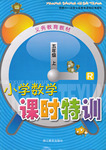题目内容
| |||||||||||||||||||||||||||||||||||||||||||||||||||||||||||||||||||||||||||||||||||||||||||||||||||||||||||||||||||||||||||||||||||||||||||||||||||||||||||||||||||||||||||||||||||||||||||||||||||||||||||||||||||||||||||||||||||||||||||||||||||||||||||||||||||||||||||||||||||||||||||
解析:
(1) |
只有title(标题,题目)能与publish连用,title此处代替的是“带有标题的科幻小说”。styles“风格”;subjects“主题”;topics“话题”。 |
(2) |
furthermore“况且”;otherwise“要不然的话”;anyway“不管怎么样”;clearly“显而易见”。前后部分的逻辑关系是递进关系。 |
(3) |
be based on“建立在……基础上。” |
(4) |
a development in literature意为“文学中的一个发展”。progress是不可数名词,“进步”;product指“作品”。 |
(5) |
这句话的意思是“经常认为科幻小说是文学的一个新的发展,但是它的祖先可在几百年前的书上找到”。 |
(6) |
care for“关心,”意思是指“这些小说关心某一个理想社会的出现”。 |
(7) |
理想社会,只有A项正确。 |
(8) |
理想社会这个主题在现代小说中也仍然经常找到。 |
(9) |
另起话题,用however。 |
(10) |
只有years符合句意。 |
(11) |
to mention just two well-known authors是插入语,意为“提一下两位著名的作家”。 |
(12) |
当代科幻小说的作家不再写火星人或探险故事。 |
(13) |
from指来源,来自火星的人。 |
(14) |
他们对预测社会科技进步的后果和人类心理状态更感兴趣。 |
(15) |
on“关于”。 |
(16) |
想象的未来世界。 |
(17) |
which引导定语从句,作live in的宾语。 |
(18) |
正因为如此,他们的作品有个明显的政治寓意。 |
(19) |
catch up with“赶上……”。 |
(20) |
由于科学事实经常赶超了科幻小说的预测。所以作家们很难领先于科学的进步。 |

 小学课时特训系列答案
小学课时特训系列答案完形填空:
Experiments have 1 that children can be instructed in swimming 2 a very early age. At a special swimming pool in Los Angles, children become expert at 3 breath under water before they can walk. Babies of two months 4 do not appear to be reluctant (不愿) to enter the water. It is not long 5 they are so accustomed to swimming that they can pick up weights from the floor of the pool. A game that is very popular with these young swimmers is the underwater tricycle (三轮车) race. Tricycles are 6 up on the floor of the pool seven feet under water. The children compete (比赛) against each other to 7 end of the pool. Many pedal (踏) their tricycles, but most of them prefer to push or drag them. Some children can 8 the whole length of the pool without coming up for a breath even once. Whether they will ever become future Olympic champions, only time will 9 . Meanwhile, they should encourage those among us who cannot swim five yards before they are gasping for 10 .
| 1.A.done | B.succeeded | C.failed | D.proved | [ ] |
| 2.A.at | B.for | C.in | D.of | [ ] |
| 3.A.keeping | B.holding | C.taking | D.having | [ ] |
| 4.A.time | B.long | C.old | D.age | [ ] |
| 5.A.when | B.before | C.after | D.since | [ ] |
| 6.A.picked | B.stood | C.set | D.lined | [ ] |
| 7.A.the | B.the other | C.another | D.other | [ ] |
| 8.A.go | B.walk | C.cover | D.run | [ ] |
| 9.A.tell | B.say | C.speak | D.talk | [ ] |
| 10.A.rest | B.stop | C.air | D.while | [ ] |
| |||||||||||||||||||||||||||||||||||||||||||||||||||||||||||||||||||||||||||||||||||||||||||||||||||||||||||||||||||||||||||||||||||||||||||||||||||||||||||||||||||||||||||||||||||||||||||||||||||||||||||||||||||||||||||||||||||||||||||||||||||||||||||||||||||||||||||||||||||||||||||
| |||||||||||||||||||||||||||||||||||||||||||||||||||||||||||||||||||||||||||||||||||||||||||||||||||||||||||||||||||||||||||||||||||||||||||||||||||||||||||||||||||||||||||||||||||||||||||||||||||||||||||||||||||||||||||||||||||||||||||||||||||||||||||||||||||||||||||||||||||||||||||